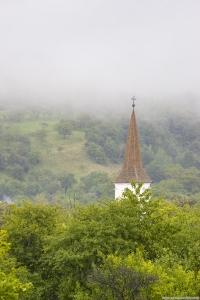SAINTS ARE SINNERS WHO KEEP ON TRYING
I admit it; I am enamored with saints. I am fascinated with those who have reached the pinnacle of spiritual freedom, unity with God. Regardless of their religious traditions, these are men and women who are deemed “scientists of holiness.” We can learn from them. They are not only guides to the grail of enlightenment but they teach us how to live in a practical and substantive way that can enrich our everyday living.
 Saints never think of themselves as such. Each has had their own personal demons to face down. It is in choosing not to run away in the million ways we humans do, but utilizing their trials and struggles for personal growth and focusing on the inner life that they demonstrate another dimension of human potential. Recovering a bit of the asceticism that has always been the foundational gristmill for spiritual advancement can help us tremendously. What I mean by this is we don’t need the severe self-denial and austere lifestyle of a Gandhi or a Buddha or a St. Francis, but to give up the current wave of entitlement, to be able to say no to our temptations on occasion, is freeing. We become able to resist our own compulsive consumption.
Saints never think of themselves as such. Each has had their own personal demons to face down. It is in choosing not to run away in the million ways we humans do, but utilizing their trials and struggles for personal growth and focusing on the inner life that they demonstrate another dimension of human potential. Recovering a bit of the asceticism that has always been the foundational gristmill for spiritual advancement can help us tremendously. What I mean by this is we don’t need the severe self-denial and austere lifestyle of a Gandhi or a Buddha or a St. Francis, but to give up the current wave of entitlement, to be able to say no to our temptations on occasion, is freeing. We become able to resist our own compulsive consumption.
People need to experience God, not be told about God. Living examples, being very much in the world, do that by inspiring the lives of others. These are not “feel good” pseudo-spiritualities or for the spiritual elite, but for everyone. Our experience of the Divine informs the self and yet continually needs to be balanced with community. Reaching out to others is both a natural progression and a means for necessary connection. Indeed, those with spiritual depth often understand social service to be as important, if not more important, than the more traditional activities of preaching and teaching.
Saints would probably also scoff at the idea of them being mystics, though that is what they are. Yet mystics are not so mysterious, rather I’ve heard them described as “ones who see into the depth of things through the fissures and fragments of our human experience”. With single-minded purpose, these friends of God (or to the ALL that IS) are granted a special way of seeing, a heightened awareness of a presence or absence.
Casting the mystical net wide as the awareness of some sort of ultimate reality that transcends all religions; religion can unify instead of divide. We can recognize that different traditions can learn from one another, if one if grounded in one’s own tradition and open to another. Christian, Sufi, Buddhist, all can enrich each other’s practices. For instance, Thomas Merton, a Trappist Monk, was influenced by the teachings of Zen Buddhism.
 It is not the visions or miracles attributed to those regarded as saints, during their lives or posthumously, that should be the reasons for reverence. In fact, that kind of thinking leads to idolatry rather than the harder working of following by example. It is the spiritual practices and articulated paths that are to be learned from.
It is not the visions or miracles attributed to those regarded as saints, during their lives or posthumously, that should be the reasons for reverence. In fact, that kind of thinking leads to idolatry rather than the harder working of following by example. It is the spiritual practices and articulated paths that are to be learned from.
That is not to say that we should disregard profound and unusual human experiences. It’s just that without a conscious effort to seek out these mystics, both past and present, their voices quickly become drown out by the difficulties of daily living, the heroes who win World Championships and are given parades, and the Hollywood stories of celebrities. In an effort to reclaim the saint, human foibles and all, we are being re-called to something larger than ourselves.
